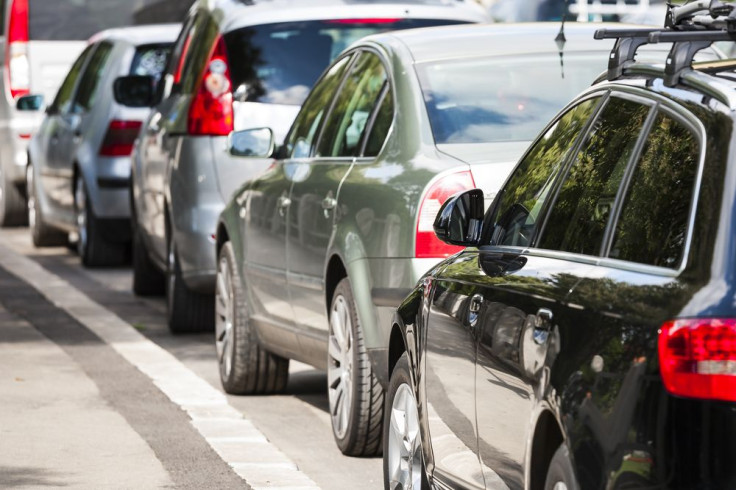Quieting Down Might Save Billions In Heart Disease Costs

(Reuters Health) - In the loudest parts of the U.S., reducing hazardous noise levels - a risk factor for high blood pressure and heart disease - could save more than $3 billion annually, according to a new economic assessment.
“A lot of work is done on air pollution and the public health burden, but noise just never seems to get the same consideration,” said senior author Richard L. Neitzel of the University of Michigan School of Public Health in Ann Arbor.
High noise levels have been tied to poor health outcomes including heart disease, possibly because sleep disturbances cause stress and interrupt body cycles, he told Reuters Health by phone.
“These are crude estimates of what could be the savings if we reduced exposures to this very common thing,” he said.
In 1974, the U.S. Environmental Protection Agency recommended an average 24-hour exposure limit of 55 weighted decibels, with nighttime noise weighted more heavily due to sleep disturbance, and the agency last assessed exposure above those levels in 1981.
For the new estimate, the researchers assumed the proportion of the U.S. population exposed to high levels of noise was the same in 2013 as estimated in 1981. Given that the country has further urbanized over the last 30 years, that is likely an underestimate, Neitzel said.
Nevertheless, he and his coauthors assumed 46.2 percent of Americans, or 145.5 million, were exposed to at least 58 decibels and 13.9 percent, or 43.8 million, were exposed to at least 65 decibels per day in 2013.
Using previous estimates, the researchers assumed that the risk of hypertension or coronary heart disease increases by seven to 17 percent per 10 decibels of increased noise exposure.
Hypertension and cardiovascular disease account for 15 percent of U.S. health expenditures, or about $324 billion per year. One-third of U.S. adults have high blood pressure, according to the Centers for Disease Control and Prevention.
As a result, the researchers suggest that reducing daily noise levels by five decibels would reduce the number of people in the U.S. with hypertension by 1.4 percent and those with coronary heart disease by 1.8 percent. That would correspond to a savings of $3.9 billion annually, as reported in the American Journal of Preventive Medicine.
“This again raises awareness that noise is actually a very important exposure,” said Dr. Mathias Basner, assistant professor of Sleep and Chronobiology in Psychiatry at the University of Pennsylvania Perelman School of Medicine in Philadelphia.
“Most people know that if it is too loud that can damage your hearing, but many people don’t know that noise has non-auditory effects,” Basner, who was not involved in the new study, told Reuters Health.
In addition to hearing damage and cardiovascular risk, high noise levels may also have cognitive effects for children, he said.
The newest available data in the U.S. are quite old, and things have changed a lot in the American soundscape since the 1980’s, he noted. Although cities have grown and individual noise events have multiplied, the vehicles making the noise, like cars and planes, have actually gotten quieter.
Not everyone in the U.S. is exposed to unhealthy levels of noise, but some 100 million are, and the most common sources are automobile traffic and aircraft traffic in dense cities, Neitzel said.
“Most of Western Europe is far ahead of the U.S. in understanding people’s noise exposure,” he said. In the U.S. the most recent noise exposure data we have is almost 40 years old, “whereas in Europe they have requirements to map out and understand who’s exposed to noise and have requirements to do something about it.”
“In the U.S. we just view it as a necessary byproduct of the technology we use,” he said.
Neitzel hopes that these new rough economic estimates will draw more attention to the problem of noise pollution.
A five-decibel reduction in noise would be quite significant, equivalent to reducing vehicle traffic by about 75 percent, Basner said.
People can reduce their noise exposures by making less noise, first and foremost, as most noise disturbances come from things like motorcycles and leafblowers, which don’t bother the user but do bother passersby, he said. When arranging a house or apartment be sure to situate your sleeping quarters away from any street exposure the building may have, he said.
“Passive strategies, like new windows or insulation, can be very effective for nocturnal noise exposure, but should really be our last resort,” Basner said. “Noise that is not produced cannot have effects.”
SOURCE: http://bit.ly/1M89HCN American Journal of Preventive Medicine, online May 25, 2015.
Published by Medicaldaily.com



























